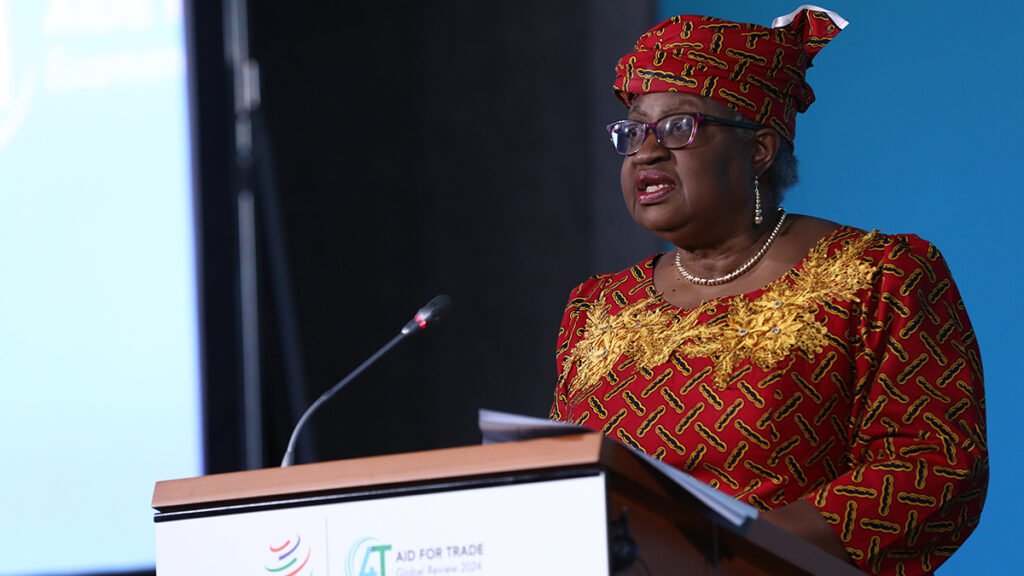At the 9th Global Review of Aid for Trade, Director-General Ngozi Okonjo-Iweala addressed the significant strides made in the WTO-FIFA-led “Partenariat pour le Coton” initiative. This ambitious project aims to boost African countries in the cotton value chain, enabling them to gain more from their cotton production.

Director-General Okonjo-Iweala celebrated the expansion of this multi-agency partnership and the completion of vital assessment studies. These studies, conducted by the International Trade Centre (ITC), the United Nations Industrial Development Organization (UNIDO), and the Gherzi Textile Organization, have underscored the critical role that the World Trade Organization (WTO) can play in fostering this collaboration. She expressed gratitude to FIFA and the African Export-Import Bank (Afreximbank) for sponsoring these studies.
A cornerstone of this initiative’s success is the involvement of various public and private sector entities, including the Better Cotton Initiative (BCI), Cotton Made in Africa (CmiA), FIFA, the International Cotton Advisory Committee (ICAC), ITC, UNIDO, and the WTO. Okonjo-Iweala highlighted the need for additional partners, such as the Africa Finance Corporation (AFC) and the Islamic Trade Finance Corporation (ITFC), to join the effort.
The Director-General emphasized the unique strengths each partner brings, from financial support and business planning to skill training, certification, standard setting, logistics, and infrastructure development. This diverse expertise is crucial for advancing the cotton sector in the Cotton-4 (C4) countries—Benin, Burkina Faso, Chad, Mali, and Côte d’Ivoire.
Key insights from the assessment studies indicate that, despite ongoing challenges, the C4+ nations have the workforce and potential to domestically produce high-quality apparel. The African cotton industry can create 500,000 direct jobs, with significant benefits for women and youth. Nonetheless, substantial investment in infrastructure, particularly in the creation of industrial parks, is essential to enhancing the value of the cotton-apparel industry.
Additionally, Okonjo-Iweala emphasized the necessity of regional integration within the African cotton sector prior to expanding into global markets. She noted that African producers have a realistic opportunity to capture a more substantial portion of the profitable sports apparel market, valued at around USD 260 billion.
To reinforce this dedication, representatives from the AFC, ITFC, ITC, UNIDO, and the WTO signed a joint declaration. This declaration demonstrated their commitment to investing in and supporting the enhancement of the cotton supply chain in African nations. The signatories agreed to encourage private sector involvement and investment, with an emphasis on developing regional hubs that can sustainably source textiles and clothing.
In her closing remarks, DG Okonjo-Iweala reiterated the WTO’s dedication to advancing discussions on cotton and agricultural reforms. She highlighted the necessity of sustained efforts and collaboration to enable African cotton producers to achieve their full potential. The “Partenariat pour le Coton” initiative represents a significant advance in helping Africa secure a larger portion of the global cotton and apparel market, which will lead to economic development and job creation across the continent.
